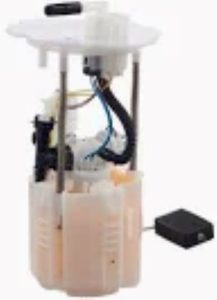Electric fuel pumps are critical components of contemporary automobile systems used to deliver the correct pressure of fuel from the tank to the engine. Most of these pumps run at around 40-60 psi, enough to supply fuel injection systems with a steady flow that provides the highest output combustion. In some performance circles, electric fuel pumps are available that can support even higher pressures,, like 70 PSI or more for turbocharged applications on high-performance vehicles. The slightest loss in pressure, even 10%, can cause your car to suffer from engine misfires, acceleration problems, or stalling.
As far as a electric fuel pump is concerned, it will give its capacity through flow rating in liter per hour (LPH). On average, a normal pump delivers between 100 to 150 LPH and high-performance variants can go until 255 LPH. The greater-flow/higher flow pumps are a must-have for those engines in order to deliver sufficient fuel at full load and high speed driving that require more fuel, such as during acceleration and also hard driving. Engine performance is reduced up to 15 percent due to the negative impact on flow rate, resulting in extra fuel consumption.
It is almost certain to be a more durable solution. The expected lifespan of electric fuel pumps is around 100,000 to 150,000 miles. But fuel contamination, or simply running the tank down on a regular basis, can cut this lifespan by 30 percent. For example, if you run the vehicle on low fuel, it can cause the pump to overheat and reduce its efficiency as well as shorten the lifespan. Under more trying circumstances, the bumper may suffer 80,000 miles of life before replacement. The tank should be a minimum of one-quarter full to prevent premature failure.

Electric fuel pumps are powered by the car's electrical system, which works on 12 volts. Any voltage interruption will affect the pump, and this would result in fuel pressure deficiencies and flow difficulties. Low voltage drop (below 12 volts) may decrease the pump’s output as much as 20% --which of course can cause poor fuel delivery. Safeguarding the operation of vital electrical aspects like the fuel pump relay and wiring is especially important in terms of sustaining consistent performance.
Most vehicles switched over to fuel injection systems at the same time electric fuel pumps were introduced in the 1990s, ruling out carburetors altogether. This change should improve the fuel delivery and in turn; fuel economy and power by way of greater control over how much air/fuel mixture is sent into the cylinder. Electric fuel pumps ensure that the vehicle is kept in good condition where emissions and fuel economy are concerned with a continued steady source of fuel. As an example, a 10% increase in fuel efficiency has been reported for some applications when swapping out mechanical pumps and replacing them with electric.
To read more on Fuel Pumps and how it will benefit your vehicle performance, click on this link Fuel Pump.